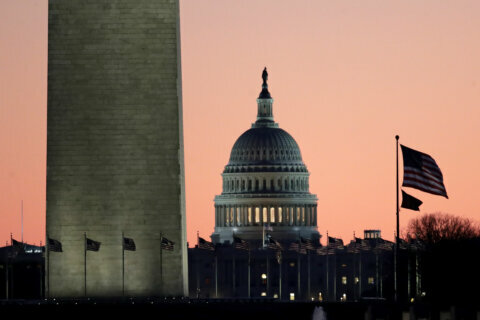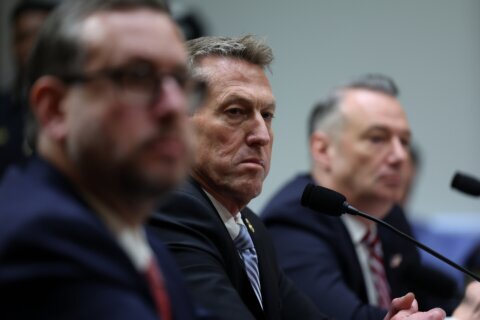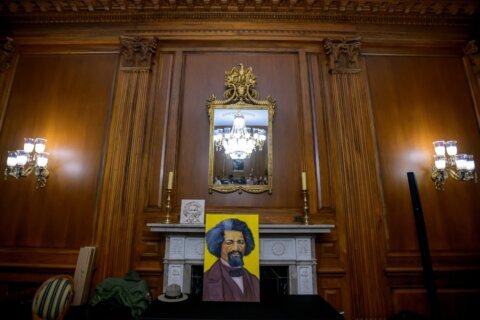
The U.S. House of Representatives and the Justice Department are set to argue Friday over two major questions in the ongoing impeachment proceedings and congressional investigations of President Donald Trump.
The D.C. Circuit Court of Appeals will consider whether the House should get access to confidential documents from the Mueller investigation to consider Trump’s reception of foreign political help, and if the White House should be able to block top advisers from complying with congressional subpoenas.
So far, federal trial-level judges have given House Democrats greenlights for access to those Mueller documents. But the House still has yet to review confidential testimony and details collected during the Mueller investigation, or have the opportunity to question former White House counsel Don McGahn, perhaps the top witness to Mueller on Trump’s attempts to fire special counsel Robert Mueller and obstruct the Russia investigation.
In some ways, Friday will be like the separation of powers Super Bowl at the D.C. Circuit Court of Appeals. The arguments will take place back to back, beginning at 9:30 a.m. ET. They raise major questions about standoffs between Congress and the executive branch, and the role of the courts, especially during impeachment proceedings.
Information the House still seeks could speak to a “pattern of soliciting foreign election interference and obstructing government investigations of his misconduct,” the House legal team wrote in a recent court filing.
The House sued over McGahn’s testimony and access to grand jury-related redactions in the Mueller report in the weeks after the Mueller investigation ended. At the time, House Democrats questioned more about Mueller’s findings, months before the current impeachment proceedings began about the President’s solicitations of Ukraine.
Though the House impeached Trump for actions separate from what Mueller investigated, the special counsel’s two-year-long probe set a tone in the impeachment inquiry.
Judges so far have pointed out how closely the court fights reflect upon current proceedings about Trump.
“Presidents are not kings,” D.C. District Judge Ketanji Brown Jackson wrote in her November opinion that said McGahn must testify and the White House couldn’t block congressional subpoenas for its former top officials. An appellate ruling about McGahn could quickly become the determinate on how much the House or Senate can access top Trump officials the White House has blocked from testimony during impeachment. The White House has used the same reasoning to block McGahn as it’s used to stop other witness from speaking to Congress about Trump’s approach to Ukraine.
Separately, Chief Judge Beryl Howell of the D.C. District Court, who oversaw Mueller’s grand jury, wrote in her opinion that the House should get access to details Mueller collected through a grand jury so Congress could continue investigating the President. Howell’s opinion was an early and important legal endorsement of the House impeachment proceedings, even before the full House voted to authorize the inquiry.
“Congress need not redo the nearly two years of effort spent on the Special Counsel’s investigation,” Howell wrote in October. The House Judiciary Committee “needs the grand jury material” Mueller collected, she added in her opinion, “to resolve questions—including the ultimate question whether the President committed an impeachable offense—that the Special Counsel simply left unanswered.”
In a previous court argument related to the Mueller grand jury case, the House attorneys told judges the Democrats could still pursue impeaching the President for other reasons, even after the current impeachment regarding Ukraine has passed.
Any decisions in the cases, made by panels of three appellate judges for each case, are likely to face further appeals tests, including potentially before the Supreme Court.
Judges Thomas Griffith, a George W. Bush appointee, and Judith Rogers, a Clinton appointee, will hear both cases Friday morning. Judge Neomi Rao, a Trump appointee, will round out the panel on the grand jury secrets case, while Judge Karen Henderson, a George H.W. Bush appointee, will be the third judge to hear the McGahn arguments.








